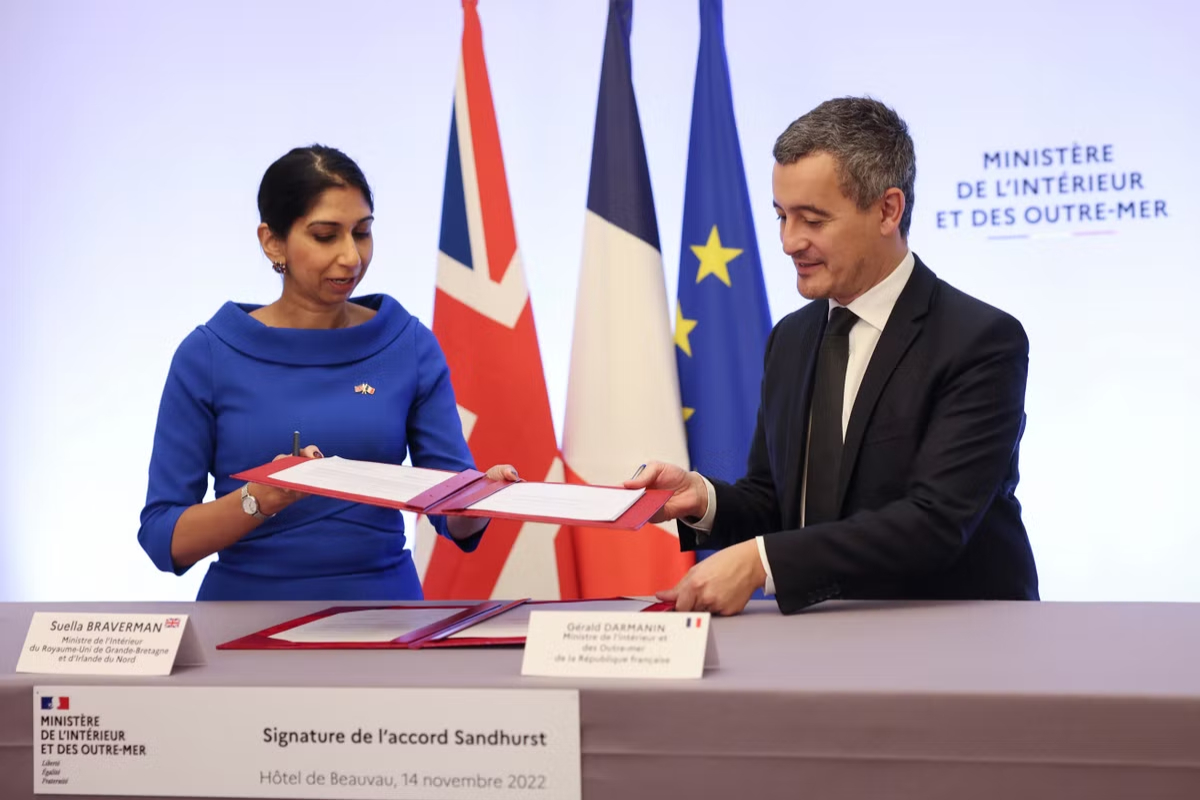- The funds will be used to boost beach surveillance in France, and UK police personnel will have access to patrols inside of France.
- The new arrangement stipulates that the UK will pay France £63 million this year, an increase from £55 million last year.
- More than 40,000 migrants have crossed in small boats so far this year.
As part of a revised agreement to try to discourage individuals from crossing the English Channel in tiny boats, the UK will pay France £8 million more annually.
The funds will be used to boost beach surveillance in France, and UK police personnel will have access to patrols inside of France.
Over the course of five months, the number of French officers monitoring the coast to try to deter departures will increase from 200 to 300.
Prime Minister Rishi Sunak declared himself “sure” that the crossings could be lowered.
Although he promised “even more cooperation” with France in the coming months, he cautioned that there was “no single measure” that could “solve” the problem.
The pact, according to Labor leader Sir Keir Starmer, is a “modest step in the right direction,” but more must be done to combat people smuggling, he said.
The government is under increasing pressure to cut back on Channel crossings, which have reached record highs this year.
According to official statistics, more than 40,000 migrants have crossed in small boats so far this year, including 1,800 only this past weekend.
Home Secretary Suella Braverman, who signed the new arrangement in Paris, stipulates that the UK will pay France £63 million this year, an increase from £55 million last year.
It will include: investment in surveillance cameras, night vision devices, and drones in French ports to try to stop crossings funding to identify individuals trying to enter the UK in lorries with detection dogs at ports investment in French reception and disposal facilities.
In order to assist each other’s deployments, UK observers will be embedded in French control rooms and French observers in UK control rooms.
Foreign Secretary James Cleverly said the UK wanted to “significantly” reduce the number of crossings – but declined to set a target for reductions.





















